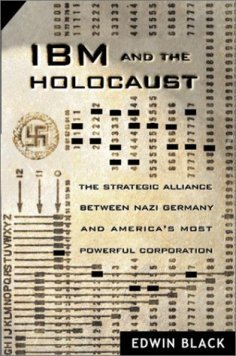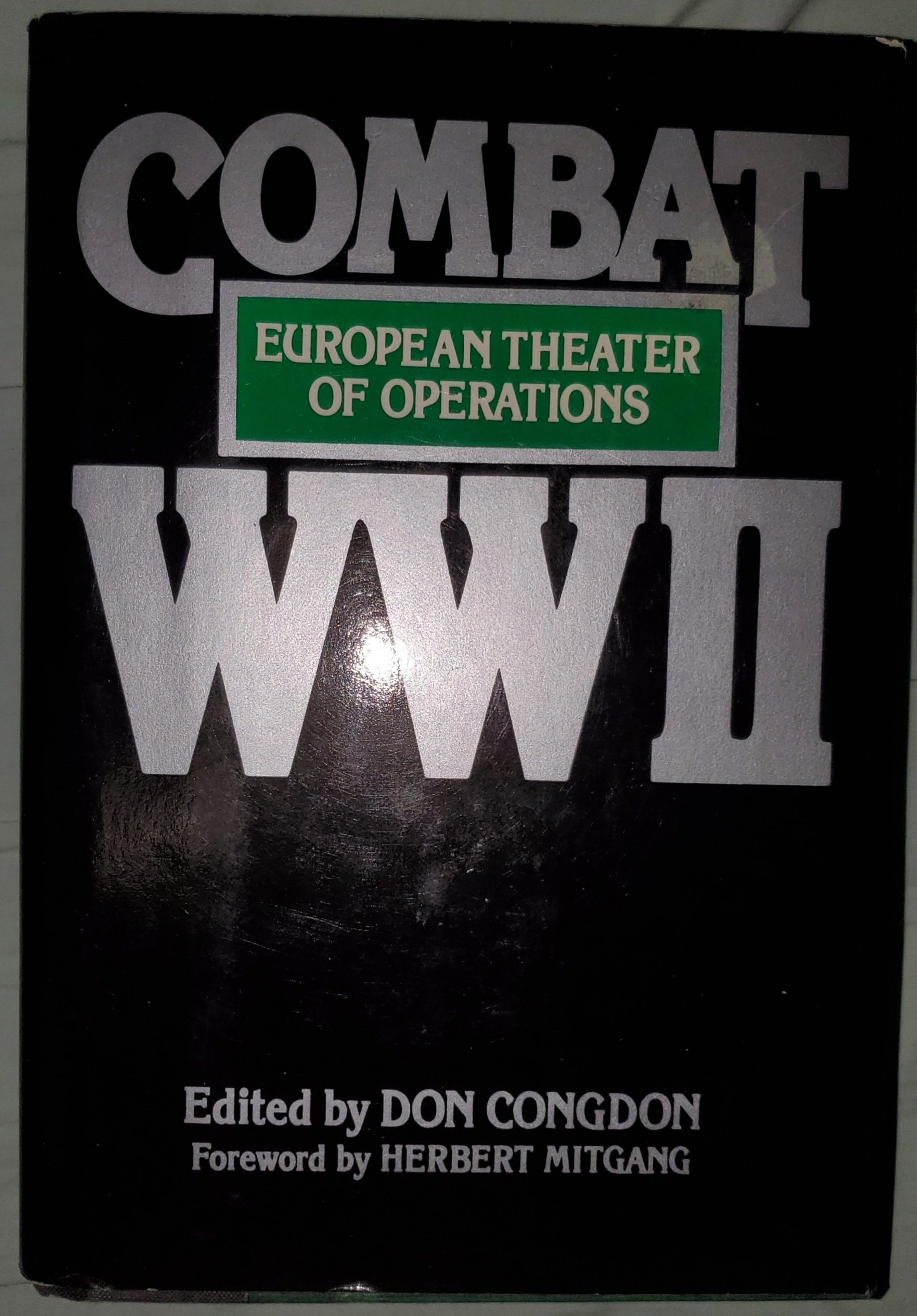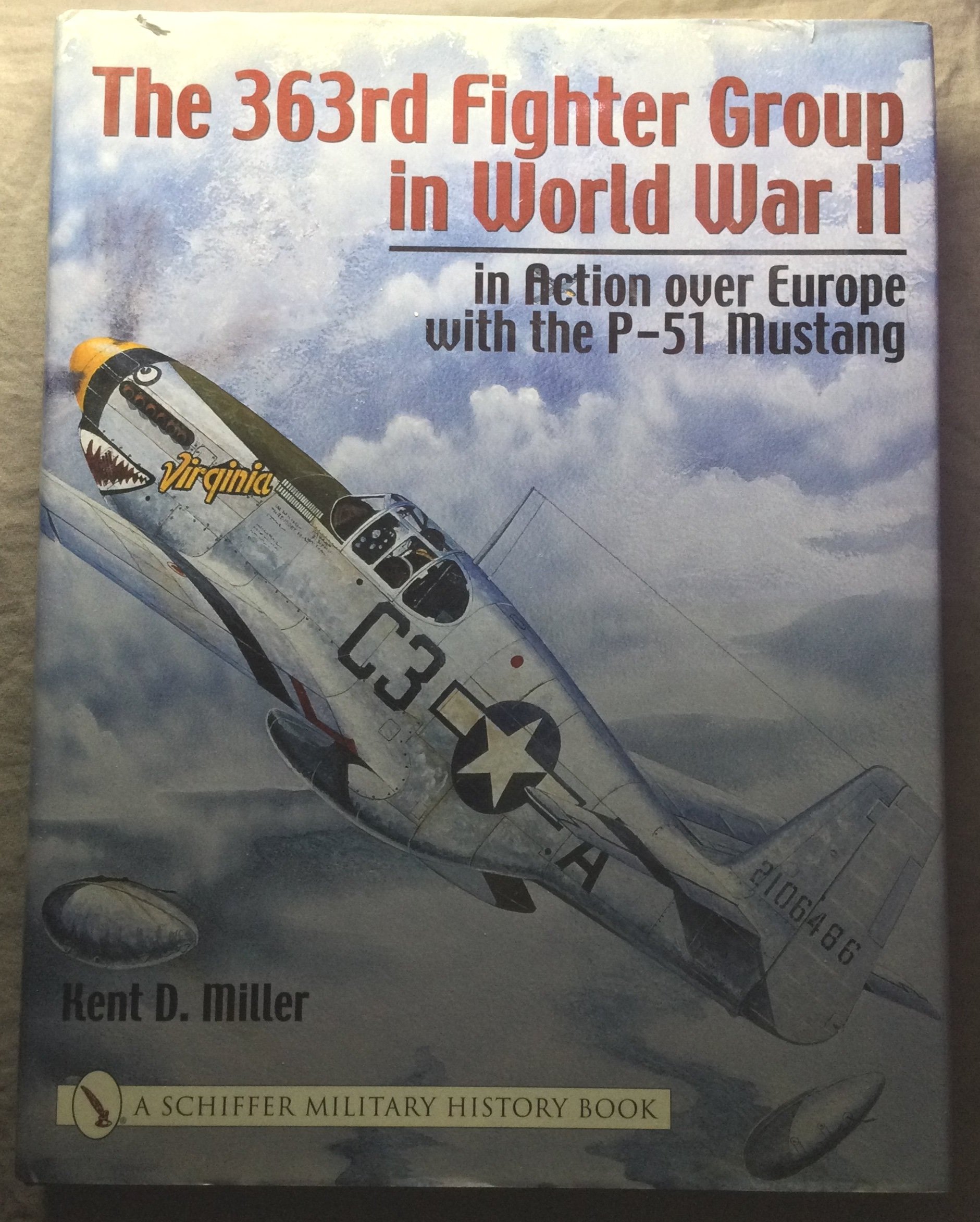 Image 1 of 1
Image 1 of 1


IBM and the Holocaust | The Strategic Alliance Between Nazi Germany and America's Most Powerful Corporation
Author - Edwin Black
Year published - 2001
Published by - Crown Publishers
Book Format - Hard Cover
Genre - Law, Business, Economics, and the Military.
Summary
1. As president of the International Chamber of Commerce, highly visible big business guru, social luminary, and personal chum of President Roosevelt and Secretary of State Cordell Hull, Watson had a newsworthy face. How did his honorary decoration by Hitler fly below the radar at a time when Nazi collaboration was considered both subversive and un-American? What other amazing feats of invisibility did the influential, temperamental Watson seem to pull off effortlessly? How? 2. Referring to IBM's constantly growing, solutions-based technology, Black writes: “Like any technologic evolution, each new solution powered a new level of sinister expectation and cruel capability.” Do you agree with his view of technology? What recent technological advances do you think carry the potential for “a new level of sinister expectation and cruel capability?” 3. In his introduction to IBM and the Holocaust, Edwin Black makes much of the fact that every sentence in the book can be backed up by “hardcopy documentation…at a moment's notice,” and that he quotes very exactly the words from telegrams, letters, and telephone transcripts. Why do you think he adopts this stance so particularly? How did it affect your reading of the book? 4. In describing the increasingly tense partnership between Watson in New York and Willy Heidinger in Germany, Black writes: “each man had to cooperate in an international campaign of corporate schizophrenia designed to achieve maximum deniability for both Dehomag and IBM.” Describe this “schizophrenia.” Which man was more successful at it? The book includes detailed portraits of both Watson and Heidinger, including fragments of correspondence that illuminate their larger-than-life personalities. To what extent is IBM and the Holocaust a story of corrupt individuals, and to what extent is it about the corrupting machinery of capitalism? 5. Black makes it clear that from Hitler's rise to power in 1933 to Germany's surrender in 1945, the horrifying situation of Europe's Jews was writ large in every major newspaper in the Western world. Other recent books on the Holocaust have stressed the same point: that from the New York Times to local papers in small German hamlets, news publications did not veil the increasingly dire climate radiating outward from Germany. Why do you think a common perception that non-Jewish citizens in Europe and the United States were ignorant of Nazi activity lingers? 6. It could be argued that Watson and his company had the power to create and provide jobs to countless Americans who were struggling during the wartime effort. Instead, he continued to build his overseas empire, to disastrous results. What, if any, is a corporation's patriotic responsibility? Is it different during peacetime than during a war? Do you think the historic events of September 11, 2001, will impact the attitudes of American corporations today? 7. What do you make of Black's assertion that “to a supranational company, making money is equal parts commercial Darwinism, corporate ecclesiastics, dynastic chauvinism, and solipsistic greed?” 8. Once the United States had entered the war, why was Watson unfazed by the threat of a hostile German takeover of IBM's subsidiaries in Germany? Why was Germany's Alien Property Custodian Law actually financially advantageous for Watson? 9. To what extent is IBM and the Holocaust a cautionary tale about unchecked technology wed to greed? Black writes: “Unless we understand how the Nazis acquired the names, more lists will be compiled against more people.” Do you think the dissemination of knowledge about history is an effective deterrent of future human rights disasters? 10. By 1940, IBM subsidiaries in Europe had gained insider access to sensitive German military information which enabled IBM's engineers to design punch card applications tailored for war use. That year, J. W. Schotte, IBM's general manager for Europe, dispatched a report to senior IBM executives in New York in which he drew “a fine theoretical distinction,” as Black describes it, “between IBM possessing specific knowledge of the facts about a military operation, such as the number of people to be counted or a list of German bombing raids, and the actions themselves.” Discuss this theoretical distinction. Can you think of any current or recent world events in which a similar distinction has been drawn by either world leaders or the media? 11. How did the business principles Watson formed during his National Cash Register days inform his response to the Dehomag revolt of 1940? What aspects of the Hollerith technology did he control even after the machines themselves were out of his grasp and the entire Dehomag board of directors had been replaced against his wishes? How was the revolt resolved? 12. Why did Holland and France each provide a unique problem for the Third Reich? How did the response of their citizenry to the Nazi takeover differ from that in other European countries? What do the final Jewish death tolls in these two nations reveal about IBM's role in the roundup? 13. In what ways did IBM have help in reclaiming its property in Europe after the war? To what do you attribute the loyalty and zeal of latecomers Fellinger, Garbrecht, and Kuczek in facilitating IBM's smooth operation and ongoing productivity, at times even against the wishes of the Reich? Why did Watson welcome the help of these foreign custodians, while finding the similar zeal of IBM soldier Lt. Col. Lawrence G. Flick, an American, a case of “interference?” 14. What was the Roosevelt administration's General Ruling 11, and why did it slow down IBM? Why did it fail to grind IBM to a halt altogether? 15. What role did IBM play in American war reparations, corporate trials, and military analysis after 1946? What did the United States' War Department conclude about Hollerith machinery at the end of the war? 16. Should IBM be held accountable today for its vital role in the Holocaust? How should it be penalized? What would it take to investigate what reperations would be
Notes -
Author - Edwin Black
Year published - 2001
Published by - Crown Publishers
Book Format - Hard Cover
Genre - Law, Business, Economics, and the Military.
Summary
1. As president of the International Chamber of Commerce, highly visible big business guru, social luminary, and personal chum of President Roosevelt and Secretary of State Cordell Hull, Watson had a newsworthy face. How did his honorary decoration by Hitler fly below the radar at a time when Nazi collaboration was considered both subversive and un-American? What other amazing feats of invisibility did the influential, temperamental Watson seem to pull off effortlessly? How? 2. Referring to IBM's constantly growing, solutions-based technology, Black writes: “Like any technologic evolution, each new solution powered a new level of sinister expectation and cruel capability.” Do you agree with his view of technology? What recent technological advances do you think carry the potential for “a new level of sinister expectation and cruel capability?” 3. In his introduction to IBM and the Holocaust, Edwin Black makes much of the fact that every sentence in the book can be backed up by “hardcopy documentation…at a moment's notice,” and that he quotes very exactly the words from telegrams, letters, and telephone transcripts. Why do you think he adopts this stance so particularly? How did it affect your reading of the book? 4. In describing the increasingly tense partnership between Watson in New York and Willy Heidinger in Germany, Black writes: “each man had to cooperate in an international campaign of corporate schizophrenia designed to achieve maximum deniability for both Dehomag and IBM.” Describe this “schizophrenia.” Which man was more successful at it? The book includes detailed portraits of both Watson and Heidinger, including fragments of correspondence that illuminate their larger-than-life personalities. To what extent is IBM and the Holocaust a story of corrupt individuals, and to what extent is it about the corrupting machinery of capitalism? 5. Black makes it clear that from Hitler's rise to power in 1933 to Germany's surrender in 1945, the horrifying situation of Europe's Jews was writ large in every major newspaper in the Western world. Other recent books on the Holocaust have stressed the same point: that from the New York Times to local papers in small German hamlets, news publications did not veil the increasingly dire climate radiating outward from Germany. Why do you think a common perception that non-Jewish citizens in Europe and the United States were ignorant of Nazi activity lingers? 6. It could be argued that Watson and his company had the power to create and provide jobs to countless Americans who were struggling during the wartime effort. Instead, he continued to build his overseas empire, to disastrous results. What, if any, is a corporation's patriotic responsibility? Is it different during peacetime than during a war? Do you think the historic events of September 11, 2001, will impact the attitudes of American corporations today? 7. What do you make of Black's assertion that “to a supranational company, making money is equal parts commercial Darwinism, corporate ecclesiastics, dynastic chauvinism, and solipsistic greed?” 8. Once the United States had entered the war, why was Watson unfazed by the threat of a hostile German takeover of IBM's subsidiaries in Germany? Why was Germany's Alien Property Custodian Law actually financially advantageous for Watson? 9. To what extent is IBM and the Holocaust a cautionary tale about unchecked technology wed to greed? Black writes: “Unless we understand how the Nazis acquired the names, more lists will be compiled against more people.” Do you think the dissemination of knowledge about history is an effective deterrent of future human rights disasters? 10. By 1940, IBM subsidiaries in Europe had gained insider access to sensitive German military information which enabled IBM's engineers to design punch card applications tailored for war use. That year, J. W. Schotte, IBM's general manager for Europe, dispatched a report to senior IBM executives in New York in which he drew “a fine theoretical distinction,” as Black describes it, “between IBM possessing specific knowledge of the facts about a military operation, such as the number of people to be counted or a list of German bombing raids, and the actions themselves.” Discuss this theoretical distinction. Can you think of any current or recent world events in which a similar distinction has been drawn by either world leaders or the media? 11. How did the business principles Watson formed during his National Cash Register days inform his response to the Dehomag revolt of 1940? What aspects of the Hollerith technology did he control even after the machines themselves were out of his grasp and the entire Dehomag board of directors had been replaced against his wishes? How was the revolt resolved? 12. Why did Holland and France each provide a unique problem for the Third Reich? How did the response of their citizenry to the Nazi takeover differ from that in other European countries? What do the final Jewish death tolls in these two nations reveal about IBM's role in the roundup? 13. In what ways did IBM have help in reclaiming its property in Europe after the war? To what do you attribute the loyalty and zeal of latecomers Fellinger, Garbrecht, and Kuczek in facilitating IBM's smooth operation and ongoing productivity, at times even against the wishes of the Reich? Why did Watson welcome the help of these foreign custodians, while finding the similar zeal of IBM soldier Lt. Col. Lawrence G. Flick, an American, a case of “interference?” 14. What was the Roosevelt administration's General Ruling 11, and why did it slow down IBM? Why did it fail to grind IBM to a halt altogether? 15. What role did IBM play in American war reparations, corporate trials, and military analysis after 1946? What did the United States' War Department conclude about Hollerith machinery at the end of the war? 16. Should IBM be held accountable today for its vital role in the Holocaust? How should it be penalized? What would it take to investigate what reperations would be
Notes -




